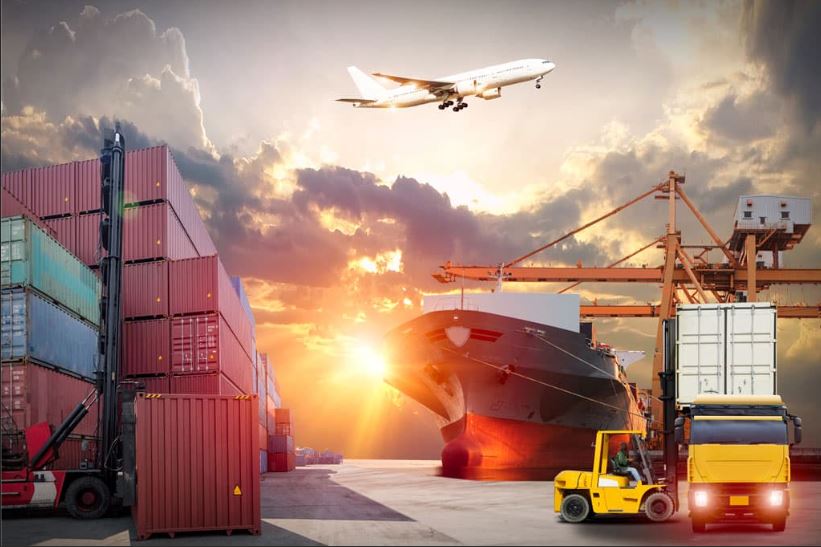The United Arab Emirates (UAE) has established itself as a prominent international hub for trade and business, fostering its swift economic development and enticing companies worldwide. At the heart of this success story lies the ever-increasing importance of a logistics company in the UAE. These companies play a vital role in facilitating seamless supply chains, efficient transportation, and streamlined operations, all of which are crucial for sustaining trade and driving economic development.
The UAE’s strategic geographical position has played a pivotal role in its transformation into a dominant force in the field of logistics. This prime location serves as a crucial link, facilitating smooth trade and connectivity between three continents. Serving as a vital gateway, the UAE facilitates seamless connectivity and trade between these continents. Its proximity to major markets allows businesses to tap into a vast consumer base and establish global distribution networks. Whether it’s facilitating imports or exports, supply chain service providers in the UAE act as a bridge, enabling the smooth flow of goods across borders and reducing transit times.
Moreover, the UAE’s business-friendly environment has been a key driver in attracting logistics companies and fostering their growth. The ease of doing business in the UAE, combined with its stable political climate and robust legal framework, instills confidence in companies seeking to establish a logistics presence.
Facilitating International Trade
Through their streamlined transportation, warehousing, and distribution services, logistics firms based in the UAE contribute significantly to the facilitation of global trade. The UAE, being a global hub, acts as a crucial transit point for goods in transit between different continents. Industrial logistics services in the UAE encompass a wide range of activities, including freight forwarding, customs clearance, documentation, and supply chain management. These services ensure that goods can seamlessly move from manufacturers to consumers, regardless of geographical distances.
Leveraging Strategic Location
The UAE’s strategic location is a key advantage for logistics companies operating in the region. Companies engaged in specialized logistics solutions for industrial sectors can leverage the UAE’s location to establish efficient supply chains, reducing transit times and costs. The ability to tap into multiple markets and connect various trade routes gives providers of logistical solutions in the UAE a competitive edge.
World-Class Infrastructure
The UAE’s commitment to developing world-class infrastructure has significantly contributed to the growth of logistics companies. Ports, airports, and logistics parks in the UAE are equipped with advanced technologies and state-of-the-art facilities, ensuring smooth cargo handling and efficient operations. For instance, the Jebel Ali Port in Dubai, operated by DP World, is not only the largest port in the Middle East but also a global transshipment hub. Logistics companies benefit from this infrastructure by offering seamless logistics solutions, including container handling, cargo consolidation, and value-added services.
Free Trade Zones and Business Environment
The establishment of free trade zones in the UAE has been instrumental in attracting logistics companies. These zones act as business incubators, fostering innovation and providing a platform for logistics companies to expand their operations. The UAE’s overall business environment, characterized by political stability, strong legal frameworks, and investor-friendly policies, further supports the growth of logistics companies in the country.
Embracing Technological Advancements
UAE-based firms offering logistics expertise have been quick to embrace technological advancements, enabling them to deliver efficient and cost-effective services. The adoption of digital platforms, cloud-based systems, and advanced tracking technologies has revolutionized industry-specific logistics services. For example, the use of real-time tracking and visibility solutions enhances supply chain transparency and enables timely decision-making. Robotics, automation, and artificial intelligence are also transforming warehouse operations, improving efficiency, and reducing manual errors.
Meeting Diverse Customer Needs
The UAE’s thriving economy, fueled by various industries, requires logistics companies to cater to diverse customer needs. Customized logistics solutions for industrial supply chains encompass a wide range of sectors, including manufacturing, construction, energy, and retail. UAE’s logistics industry players offer specialized services tailored to each industry’s unique requirements. Whether it’s handling oversized equipment for construction projects, managing temperature-controlled supply chains for perishable goods, or providing just-in-time delivery for manufacturing operations, logistics companies play a vital role in supporting the UAE’s diverse business landscape.
Supporting Economic Diversification
The UAE is actively pursuing a path of economic transformation, seeking to diminish its reliance on oil revenues and establish a resilient and knowledge-driven economy. Logistics companies contribute significantly to this diversification by supporting non-oil sectors and fostering international trade. As the UAE prioritizes the development of sectors like tourism, e-commerce, manufacturing, and renewable energy, the demand for customized industrial logistics solutions is experiencing significant growth. Logistics companies act as enablers, connecting businesses, facilitating cross-border trade, and driving economic growth across various sectors.
In conclusion, logistics companies in the UAE play a pivotal role in facilitating trade and driving economic growth. Their contribution to customized supply chain solutions, coupled with the UAE’s strategic location, world-class infrastructure, and favorable business environment, has established the country as a global logistics hub. As the UAE progresses in its economic diversification and expands its global market presence, logistics companies will continue to be indispensable in assisting businesses, streamlining supply chains, and meeting the evolving requirements of a dynamic trade environment.



































